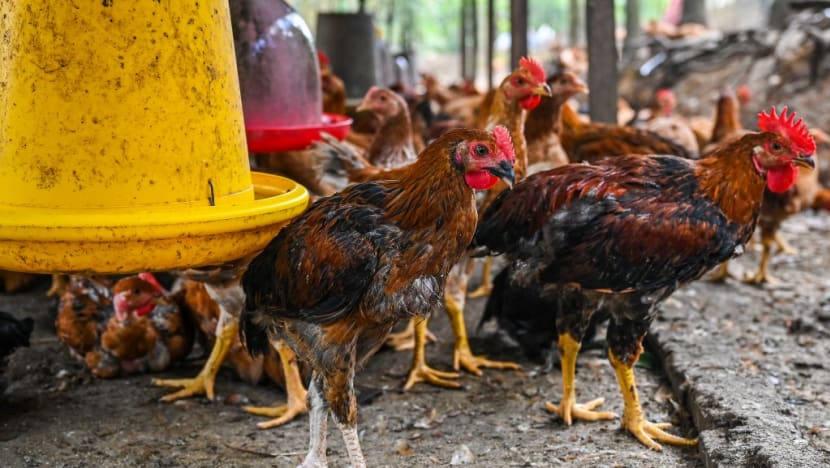Malaysia's chicken export to be considered only if domestic supply not affected, says special task force against inflation

Chickens in a poultry farm in Temerloh in Malaysia's Pahang state on May 31, 2022. (Photo: AFP/Mohd RASFAN)
PUTRAJAYA: The approval to export chicken will only be considered if the domestic chicken supply is not affected, said the chairman of Malaysia's special task force against inflation Annuar Musa on Wednesday (Aug 17).
Mr Annuar said this is to ensure that the price of chickens can be controlled.
He also said that the issue involving provisions of subsidies to chicken farmers needs to be fine-tuned.
The subsidies are given to chicken farmers to enable them to sell standard chicken at the retail ceiling price of RM9.40 per kg in Peninsular Malaysia.
"Apart from the issue of export, we also have to deal with the issue of how long the subsidy is to be maintained. If we suddenly allow export and end subsidies, the price of chicken will soar again.
"We have to make sure that domestic supply is not affected at the expense of pursuing a higher profit margin, especially in Singapore which is willing to buy at a higher price," he told reporters.
Mr Annuar said this when asked to comment on a statement by domestic trade and consumer affairs deputy minister Rosol Wahid.
Mr Rosol had said that the Cabinet would finalise the decision on whether farmers could export chicken on Wednesday.
Mr Annuar who is also the Minister of Communications and Multimedia said Cabinet members had discussed the permission to export chicken for which the Department of Veterinary Services had submitted several recommendations.
"As of today, the Cabinet has not made any decision (permission to export chicken). The relevant ministries and departments will follow up on data preparation and so on," he said.
Mr Annuar said that at the moment, the domestic need for chickens in the country is about 70 million per month or about 2.2 million chickens a day.
Although it is said that the supply currently exceeds the requirement at a level of about 3.5 million chickens, the government will only allow exports if it does not affect domestic needs.
Mr Annuar added that the task force against inflation had ordered the country's Department of Statistics to conduct a study to determine the actual cost of chicken at the farm level.














